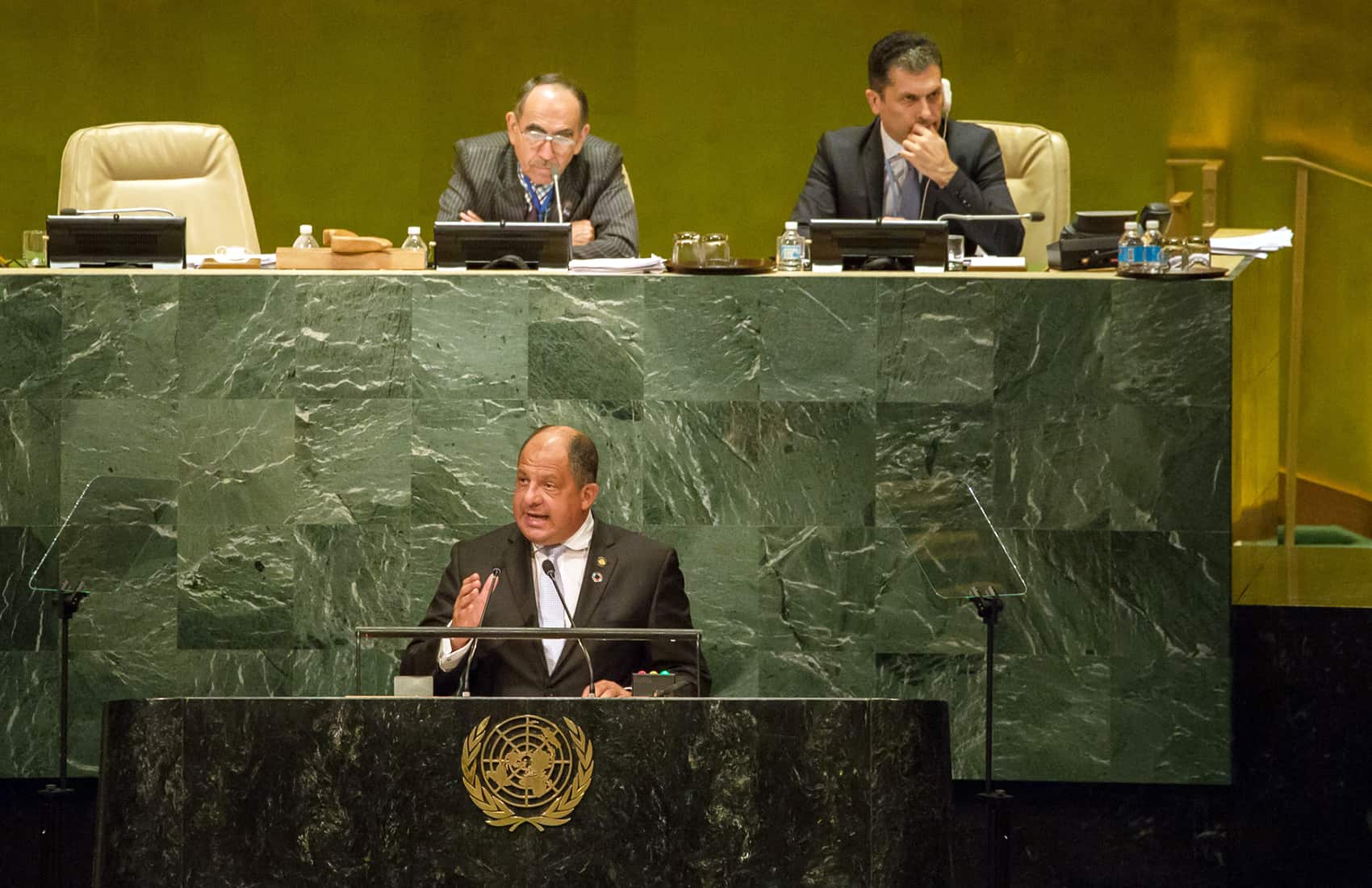President Luis Guillermo Solís urged members of the United Nations on Tuesday evening to find ways to ensure protection of refugees’ and migrants’ human rights — at a time when Costa Rica is facing a major influx of migrants.
Solís addressed attendees of the 71st U.N. General Assembly and said that the migration problem is global and requires joint solutions, solidarity, shared responsibility and integral approaches.
“We are about to finish 2016 with little progress in addressing the crisis of refugees and migrants, which is the worst since World War II,” he said.
Between April and September, some 9,500 migrants passed through Costa Rica, Solís said.
In the first six months of this year, the country granted refugee status to 215 people.
The president noted that the country is now part of the route for thousands of Cubans, Haitians, Central Americans, Asians and Africans hoping to reach the United States. Solís said the situation has forced the country to invest “its scarce resources to attend these migrants.”
Solís noted that environmental disasters worsened by climate change are forcing people to move both within their countries and abroad.
The president urged U.N. members to asses the impact of migration on women and work toward implementing better public policies to address the issue.
“We will keep raising our voices and calling for action to fight gender violence and sexual violence,” Solís said.
He noted that Costa Rica believes the U.N. should choose a woman as Secretary General. Costa Rica’s candidate Christiana Figueres dropped out of the race earlier this month.
Also from the pulpit
Besides his comments on migration, the president noted his disapproval of nuclear tests carried out by North Korea and expressed his “absolute and unequivocal condemnation” of terrorism in all its forms, regardless of who promotes it.
He also spoke about climate change and cited Costa Rica’s environmental commitments. Among them he noted the country’s goal to become a decarbonization research center and its goal of reaching carbon neutrality by 2021.
Solís also celebrated the restoration of relations between the U.S. and Cuba and the peace agreement between the government of Colombia and the FARC guerrillas.
Protest against Brazilian Government
Early on Tuesday, Solís and his entourage left the U.N. General Assembly following the announcement of a speech by new Brazil President Michel Temer.
Costa Rica’s Foreign Ministry said in a news release that the president’s decision was based on the government’s concern over the political situation in Brazil following the impeachment of former President Vilma Rousseff.
Delegates from Nicaragua, Cuba, Venezuela, Ecuador and Bolivia also exited before the speech.
The Foreign Ministry said Costa Rica’s exit was an unilateral decision.
Costa Rican lawmakers passed a motion in the afternoon session to ask Foreign Minister Manuel González to appear before the Legislative Assembly to explain the government’s decision at the U.N.
Gerardo Vargas, a legislator for the Social Christian Unity Party, criticized Solís, saying that Costa Rica’s foreign policy “can not depend on the President’s mood” and that “Solís’ action damaged the country’s image.”
Maureen Clarke of the National Liberation Party said Solís’ action does not represent the way Costa Rica handles its foreign policy.
Foreign Minister González offered explanations for the president’s decision on his Facebook page, saying Solís doesn’t agree with some of the recent political happenings in Brazil. He also said it’s not mandatory for a president to listen to a speech that he has no interest in and said “we have absolutely not offended Brazil.”
González also said that he welcomes the lawmakers’ request to appear before the full Assembly.






